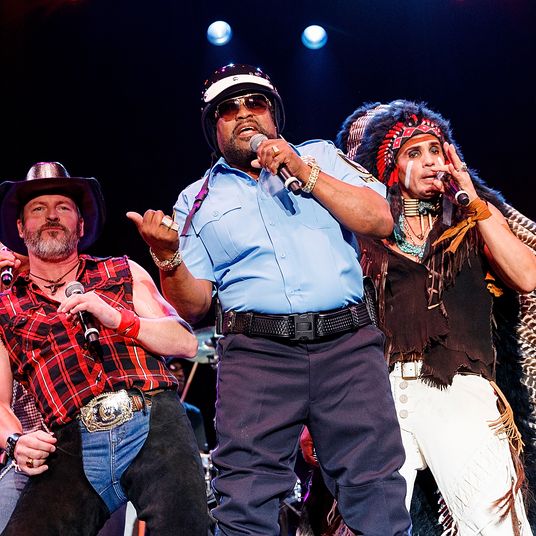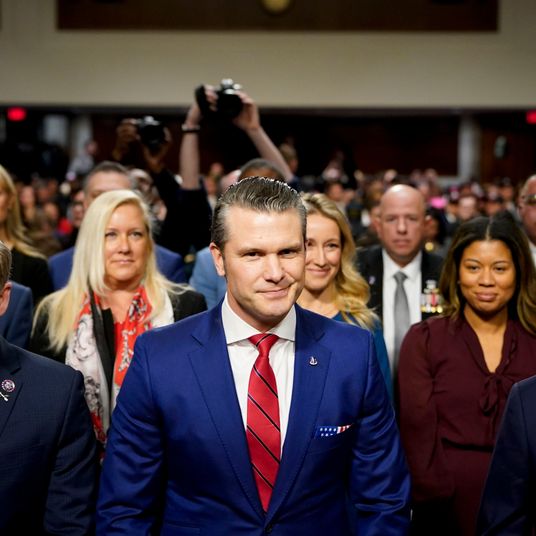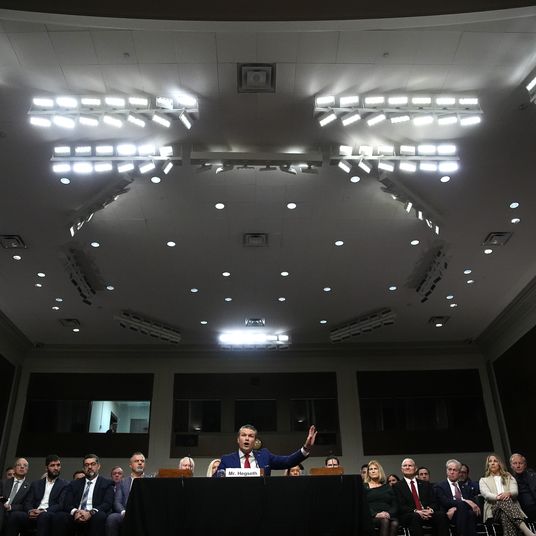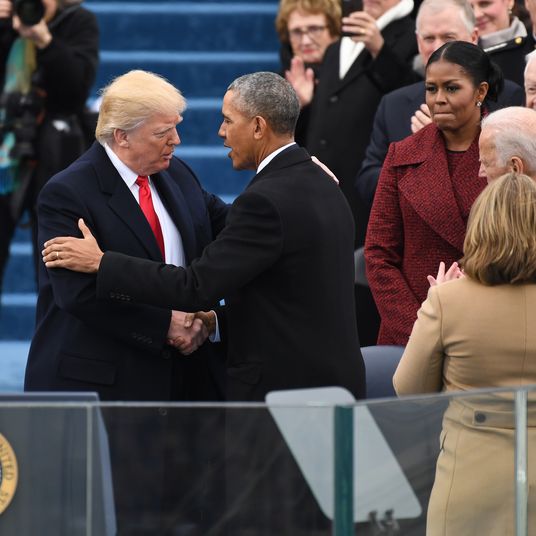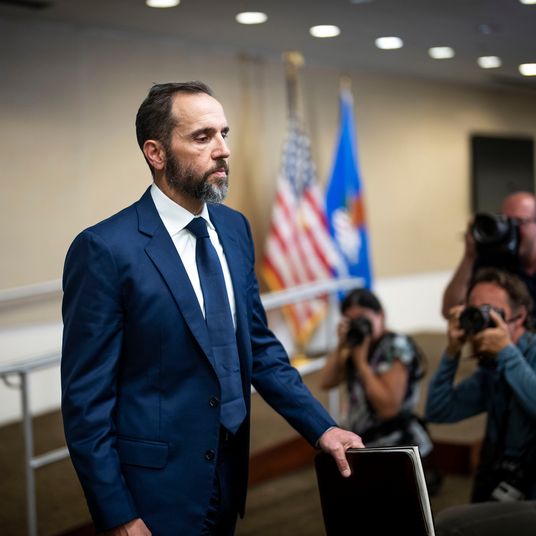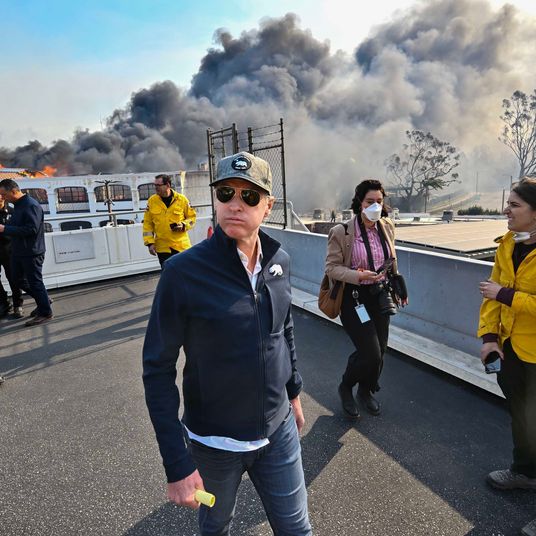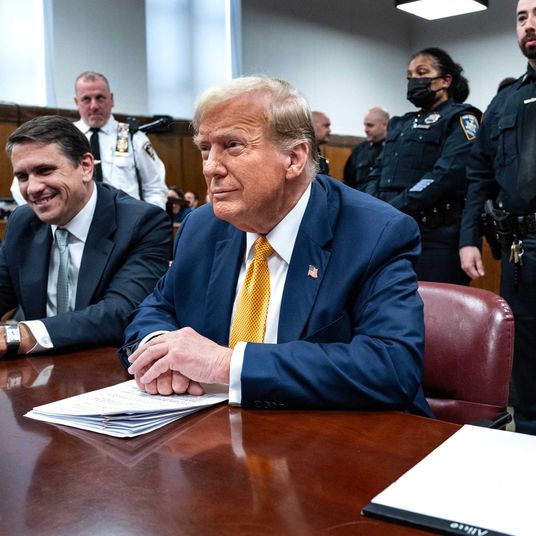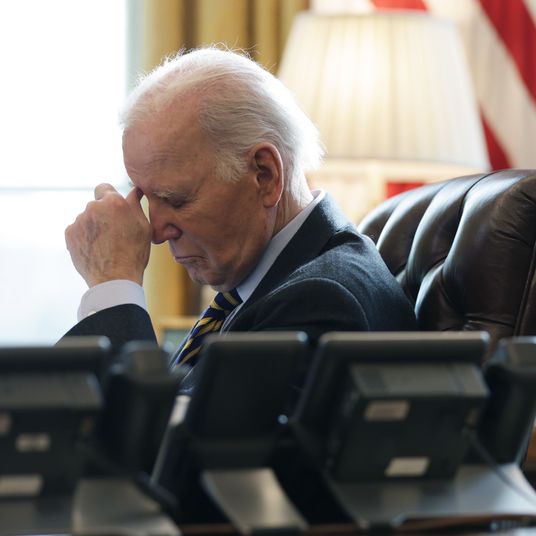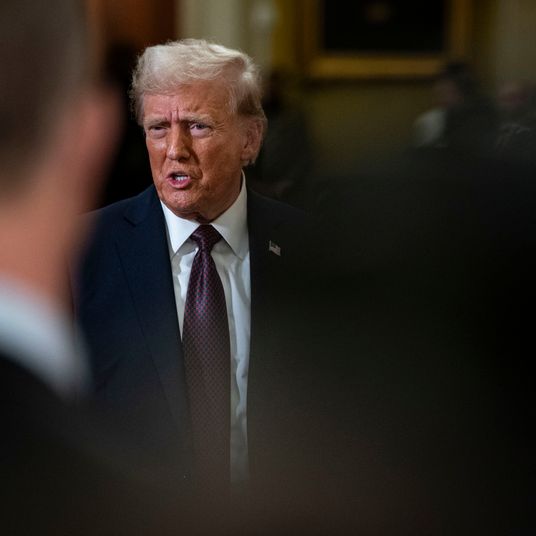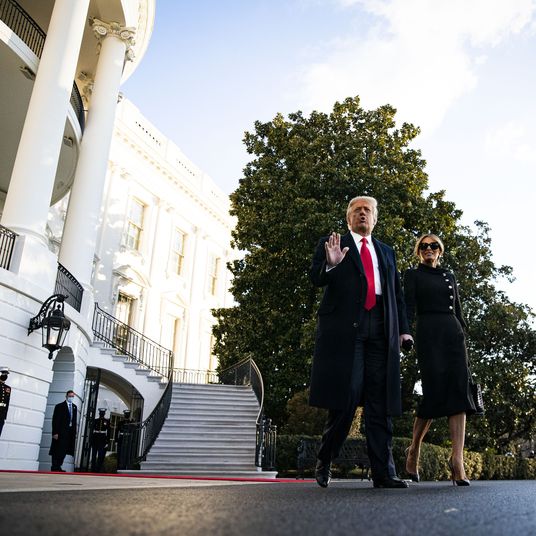
Photo: Getty
The first week of the general election is on the books, and it sure has been a wild one, marked by debate over how to revive economy, the sleaziness of veep vetter Jim Johnson, and the troops levels in Iraq. But broader forces may ultimately decide the race or the White House — things like the political climate and overall organizational strength. On those fronts, Barack Obama seems to have an edge, at least for now, over John McCain.
• Jonathan Chait looks at party identification and concludes that “it’s virtually impossible terrain for McCain” — too many people are currently calling themselves Democrats. McCain “can’t win without massive defections from the Democratic base.” [Plank/New Republic]
• Chris Cillizza also notes that a party-identification gap is “strikingly apparent” in this week’s polls, but says it remains to be seen how big of a problem this will be for McCain. The gap reflects discontent with the Republican brand, a brand that McCain has “consistently run well ahead of” in polls. Plus, party identification “has a tendency to change in the immediate runup to an election.” [Fix/WP]
• E.J. Dionne Jr. writes that Obama has a smaller percentage of Democratic supporters than John Kerry did, but that there are so many more Democrats now that it more than offsets the difference. He also notes that a sharp shift in party identification, as we’re seeing now, can “presage periods of bipartisanship” as “moderate Republicans in Congress could move toward [Obama] to protect themselves against a Democratic tide.” Something similar happened with President Reagan in 1981. [WP]
• Eric Kleefeld also notes that McCain is facing a divided party. Far fewer Republicans are satisfied with him as nominee than Democrats who are satisfied with Obama, and “this is despite the fact that McCain sewed up his nomination months ago.” [Election Central/Talking Points Memo]
• Peggy Noonan says that “no one is surprised” by the polls showing Obama ahead. “Everyone knows this is a Democratic year.” But “part of the dynamic this year” is “the playing out of a long-ongoing cultural and societal shift” between Old America and New America, concepts which have nothing to do with age but ideals. Where are we headed? “America is always looking forward, not back, it is always in search of the fresh and leaving the tried.” [WSJ]
• John Mercurio predicts that for all the talk about candidates who can drastically alter the familiar electoral map, we’re likely to see the same red/blue divide in the same regions that we saw in 2004 and 2000. [National Journal via MSNBC]
• Lynn Sweet sees in Obama’s launch of a Website to combat Internet rumors a certain shift in strategy. “From now on,” she writes, “rather than try to ignore rumors when they start … the Obama team will activate its millions of followers into an Internet-based truth squad to separate lies from facts.” It may or may not work, “but it’s better than trying to pretend that questions don’t exist.” [Chicago Sun-Times]
• Peter Slevin reports that the Obama campaign is dispatching 36,000 volunteers across seventeen states for six weeks each in “a measure of his determination to out-organize Sen. John McCain” in crucial swing states. [WP]
• Ben Smith and David Paul Kuhn write that Obama’s decision to “merge key elements of the Democratic National Committee into his own campaign’s Chicago headquarters” is meant to centralize and unite the party, and minimize drama and conflict. [Politico] —Dan Amira
Related: Makers of Racist Obama Monkey Would Like to Transcend Racial Bias
Obama and the Insiders: Great Band Name, Bad Campaign Slogan
For a complete and regularly updated guide to presidential candidates Hillary Clinton, Barack Obama, and John McCain — from First Love to Most Embarrassing Gaffe — read the 2008 Electopedia.





